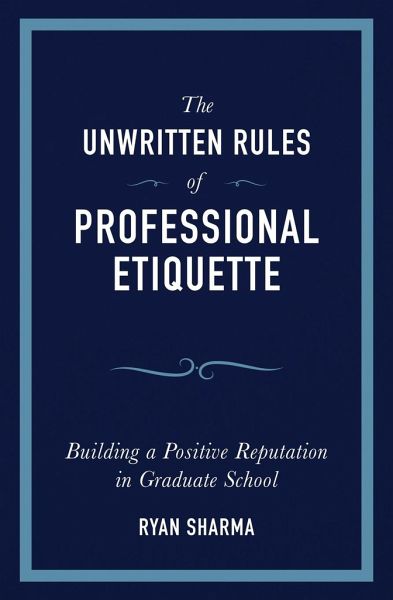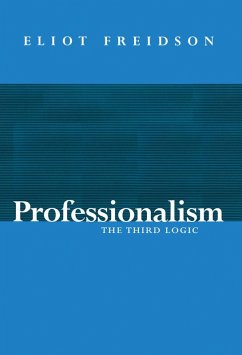
The Unwritten Rules of Professional Etiquette

PAYBACK Punkte
6 °P sammeln!
Did you know that no one cares about your grades in graduate school because everyone gets As? Did you know that all students are doing extra activities to pad their CVs and resumes? Do you wonder how you are supposed to stand out among your peers and get access to special projects, training opportunities, or internship placements? Do you know the common faculty annoyances that may spoil your chances at these opportunities? A truly professional demeanor will give you access to a competitive edge, yet there are many unwritten expectations that-if you are not aware of them-can jeopardize your rep...
Did you know that no one cares about your grades in graduate school because everyone gets As? Did you know that all students are doing extra activities to pad their CVs and resumes? Do you wonder how you are supposed to stand out among your peers and get access to special projects, training opportunities, or internship placements? Do you know the common faculty annoyances that may spoil your chances at these opportunities? A truly professional demeanor will give you access to a competitive edge, yet there are many unwritten expectations that-if you are not aware of them-can jeopardize your reputation. The Unwritten Rules of Professional Etiquette gives you an honest account of the ways faculty silently judge students without pulling any punches. With this straightforward advice you can sidestep the hidden graduate school pitfalls and emerge at the top of your class. Covering topics such as excelling in interviews, responding to constructive feedback, and dealing with difficult faculty, this compendium is an essential resource for navigating the complex world of academic relationships. While this is an indispensable handbook for graduate students, undergrads practicing this advice will be truly outstanding.














